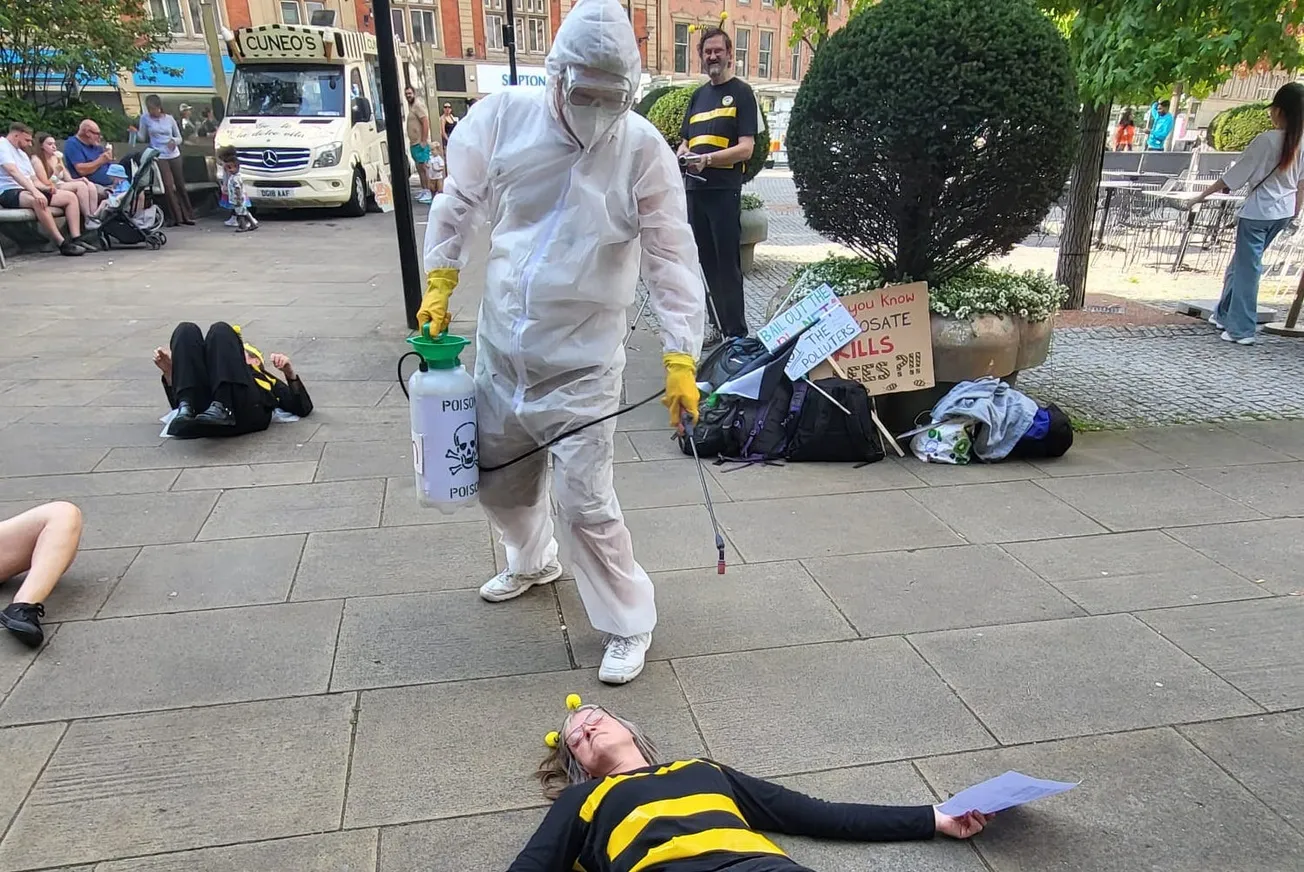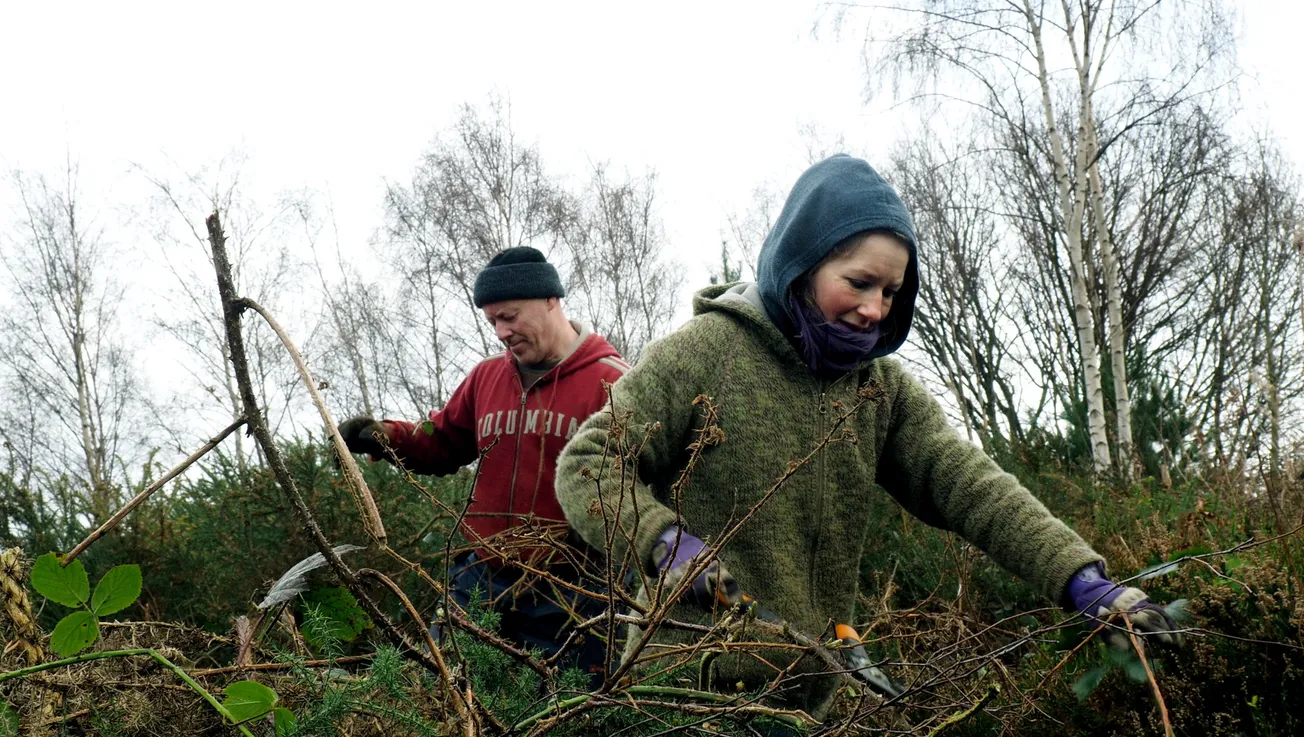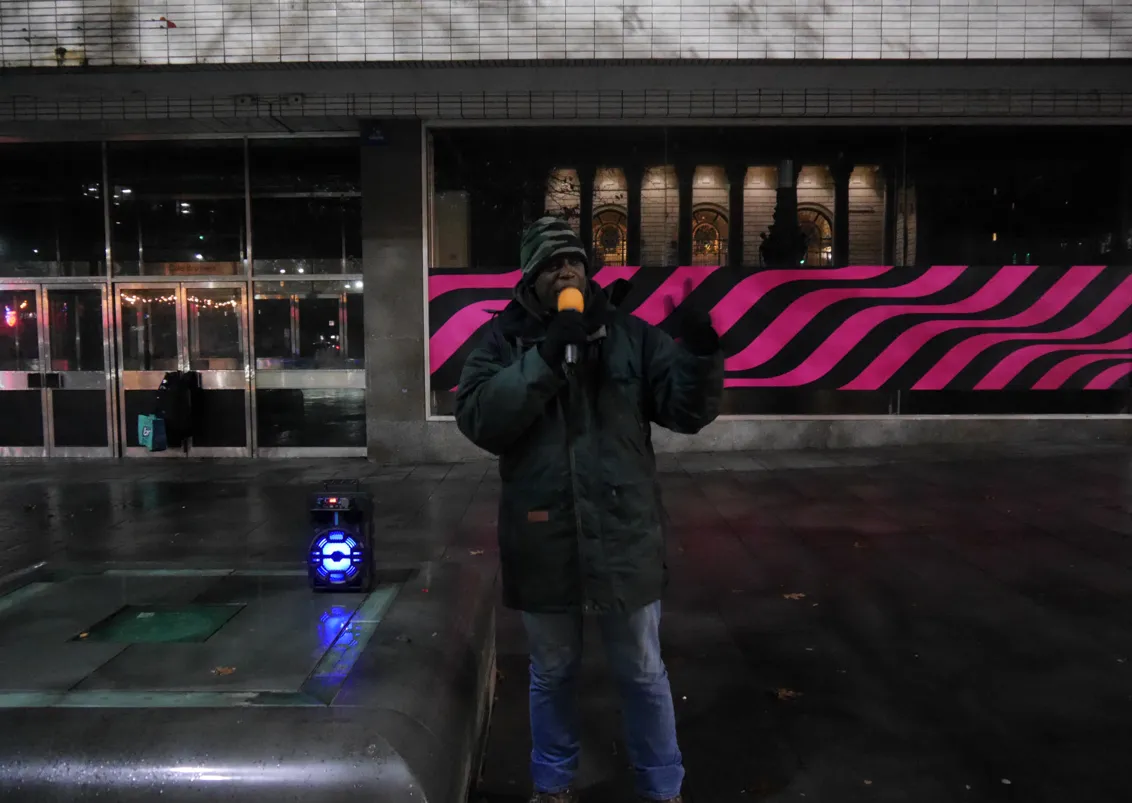Good afternoon readers — and welcome to the Thursday Tribune.
It’s not every day that you climb the grand staircase of Sheffield Town Hall and pass a giant bee walking the other way. I had this rare privilege on Wednesday thanks to the Sheffield branch of Extinction Rebellion, who were there to protest the council’s continued use of the weedkiller glyphosate, which has been shown to harm wild bee colonies. The council’s defence is that not using glyphosate would cost it £150million — at least according to its infamous contractor Amey.
Sheffield’s bee-felling scandal
“We are currently experiencing the sixth mass extinction of species [in world history], and insects are taking the biggest hit,” says Izzy Price. She is resplendent in a stripy shirt, two fuzzy antennae attached to a headband, and a paper crown, presumably to indicate she is not simply a worker bee, but the queen. We’re not at a fancy dress party or a parade — she’s in the main council chamber at Sheffield Town Hall, agitating for change.

For at least four years, Sheffield Council has been assuring residents it will reduce its reliance on the weedkiller glyphosate. It’s a chemical in danger of being banned in the EU and which has been shown to damage wild bee colonies, disrupting their ability to regulate the temperature of their hives. There are other concerns, including a possible risk to human health, although the evidence for this is far less conclusive.
In 2021, more than 6,500 Sheffield residents signed a petition calling for the council to stop using glyphosate entirely — a proposal that received support from all three main parties. Cllr Joe Otten from the Liberal Democrats was one of those who spoke up, telling the council chamber “it was now time” to end the chemical’s use and start testing safe alternatives.
This week, Cllr Otten, as chair of the Waste & Street Scene Policy Committee, had to answer to a hive of costumed protestors from Extinction Rebellion Sheffield, who wanted to know why glyphosate is still being sprayed on the city’s streets. In the last 20 years, the number of flying insects in the UK has fallen by close to two thirds. “The first thing to do to reverse this trend is to stop poisoning them with herbicides, insecticides and pesticides,” Izzy tells the chamber.
The council is keen to point out that it has cut down: it is now mostly using glyphosate on hard surfaces like pavements, which it hopes will minimise the effect on wildlife. But, beyond a vague commitment to continue to reduce, its plans for the future are murky. Glyphosate is still authorised for use in England until December 2025, when the government will have the opportunity to either extend or end its authorisation, and Sheffield Council is clearly waiting to see what it decides.

But why, protestors ask, should a Labour-run council look to a Conservative government to lead the way? David Wain, one of the council’s environmental officers, summed up the real reason Sheffield is holding its breath for a change in the law. It would, he told the council chamber, “put the council in a more advantageous position” in negotiations with the company responsible for spraying glyphosate on the city’s streets: Amey. If that name sounds familiar, it’s because they are the same council contractor which was embroiled in the infamous tree-felling scandal.
Sheffield deserves great journalism. You can help make it happen.
You're halfway there, the rest of the story is behind this paywall. Join the Tribune for full access to local news that matters, just £8.95/month.
SubscribeAlready have an account? Sign In







